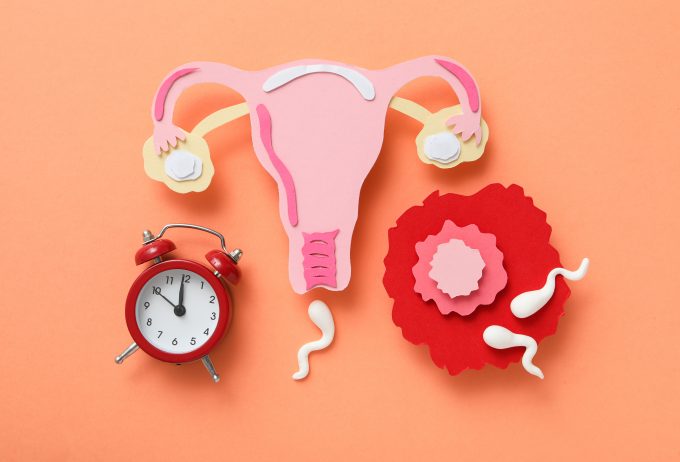AMH and its relation to fertility: why should you get tested?
12.4.2023 · 2 min reading
Hormones rule the body. You probably already know the function of the most "talked about" ones like progesterone, oxytocin, insulin or hCG, but AMH (Anti-Müllerian Hormone) is often forgotten in the context of reproductive health. You should definitely be aware of its existence, especially if you are planning to get pregnant in the future. It is the most important hormone in relation to a woman's fertility.
Are you over thirty? Take care of your egg supply
To begin with a little reminder: the number of eggs each woman is “judged” at birth – it is not a bottomless supply that is available to us throughout our lives, but a given number from which it is gradually “cut” as the woman grows older. The peak when the chances of pregnancy are highest is at the age of 22-27, after which (typically from the age of 30-33) the number and quality of eggs gradually decreases. Around the age of 30 at the latest, every woman who plans to become pregnant in the future should be interested in the so-called ovarian reserve – the current supply of eggs on the ovaries.
How much time is left to start a family?
Since there is a trend in society to postpone parenthood, the AMH hormone is beginning to be talked about quite a bit, especially among the childless “over thirty”. This is because it is a hormone that reflects the number of remaining follicles (and thus eggs) on the ovaries. So the AMH test can actually predict a little bit how much time you have left to start a family. Among other things, the AMH value is also absolutely important in the treatment of fertility disorders. The test also gives us a clue as to how the ovaries will respond to hormonal stimulation. Knowing this value, we are also better able to prevent possible complications of self-stimulation, especially hyperstimulation syndrome. It is also recommended for women who have severe endometriosis, have had ovarian surgery or chemotherapy.
How the test is done and what the AMH levels tell you
Doctors simply check your AMH level from your blood, and as it doesn’t change during your cycle, you can go for a test at any time. The normal range for AMH is between 2 and 2.5 ng/ml. If your AMH levels come out very high, it may indicate polycystic ovary syndrome (PCOS), in which a woman’s body produces more male hormones than it should. Conversely, low AMH may indicate low ovarian reserve, i.e. an already (almost) depleted supply of eggs suitable for fertilisation. You will know the results of the test the next day, and you will be able to consult your doctor about the results, including suggestions for treatment, which you should not delay, especially in the case of low values.
AMH levels
- Too high: > 6 ng/ml
- High: 3 – 6 ng/ml
- Normal: 2 – 2.5 ng/ml
- Low: 0.3 – 0.9 ng/ml
- Very low: < 0.3 ng/ml
These are guideline values. Exact interpretation of AMH test results must always be made by a doctor.
How to “improve“ your fertility
As mentioned above, age plays a major role in the number and quality of eggs. Although you cannot influence the passage of time, you can improve your fertility by following these steps.
- If you smoke tobacco products, stop as soon as possible
- if you are overweight or obese, work towards a normal BMI range. As little as 5-10% weight loss can improve your reproductive health
- consider checking your vitamin D levels and, if deficient, discuss with your doctor how to supplement it
- Incorporate more ‘Mediterranean‘ foods into your diet and enrich your daily menu with fruit and vegetables, high quality carbohydrates and plant sources of protein
- And most importantly, don’t delay your pregnancy to an older age








